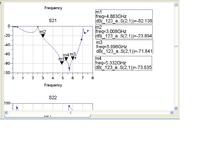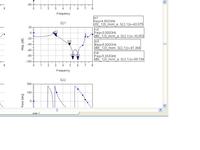TerryADS
Full Member level 2

mesh option in momentum of ads
Hi friends,
I am simulating bandstop filter(5.5G~6.5GHz) in momentum.When i set the stop frequency as 7.5GHz,i got:

And if i set the stop frequency is 8GHz,I can get:

My question,why can i get the different result as i set the different stop frequency?which one is correct?
Thanks,
Hi friends,
I am simulating bandstop filter(5.5G~6.5GHz) in momentum.When i set the stop frequency as 7.5GHz,i got:

And if i set the stop frequency is 8GHz,I can get:

My question,why can i get the different result as i set the different stop frequency?which one is correct?
Thanks,



